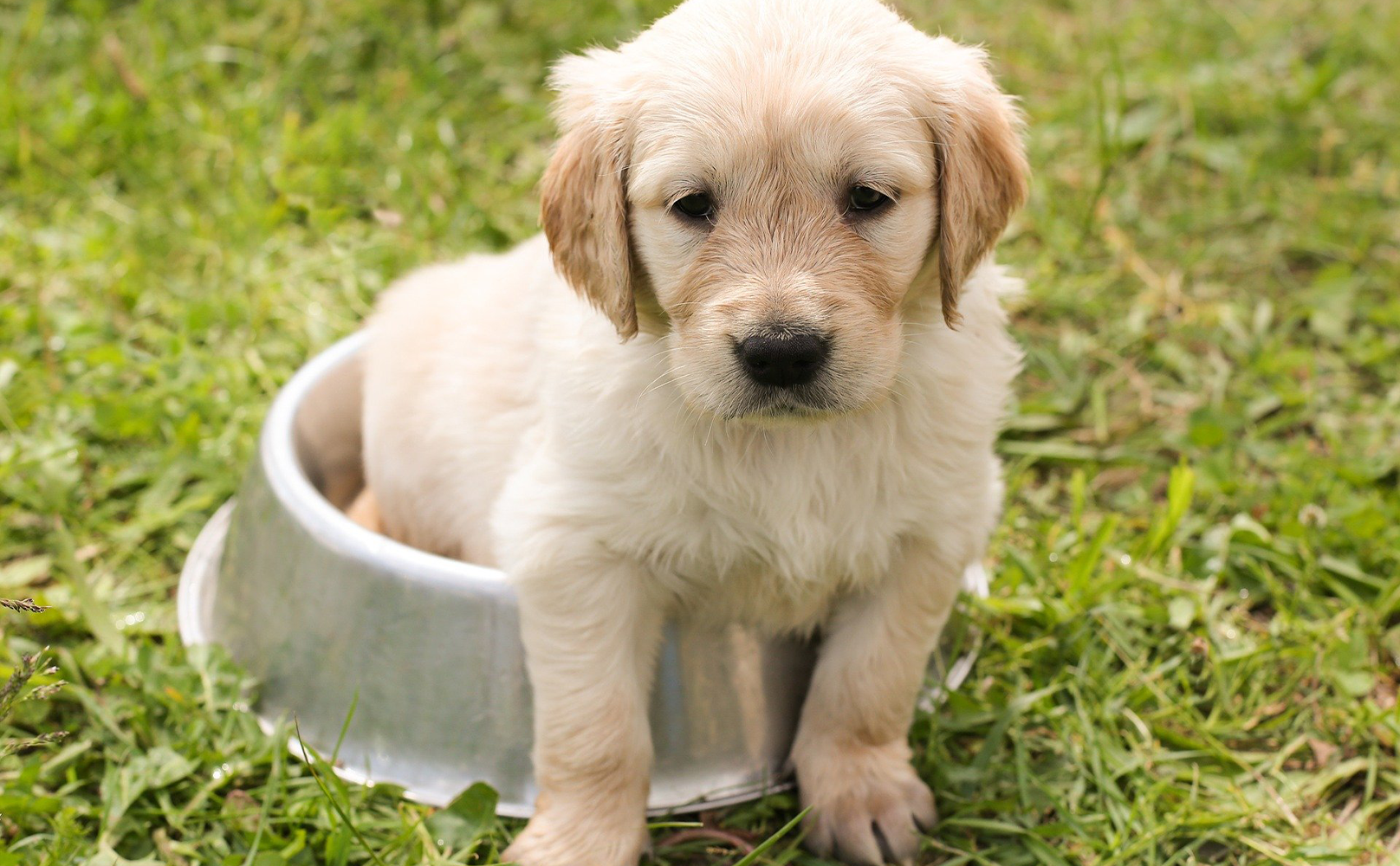Does this sound familiar to anyone?
It’s 2am. You wake up to a horrible stink tickling your nostrils, and your dog (who is normally a let’s-cuddle-butt-to-face kind of sleeper), is tucked under the bed with just his tail sticking out. You turn on the light and it’s Picasso in poop across the carpet. What in the Name Of Dog happened here?!
Most people who have dogs have some experience with diarrhea (some of us more than others). Sometimes it resolves just as quickly as it appeared, and other times it drags on for weeks, months, or even years. There are many possible root causes for diarrhea in dogs, but one commonality is that it usually involves an imbalance of good and bad bacteria in the intestinal tract—that’s where probiotics come in.
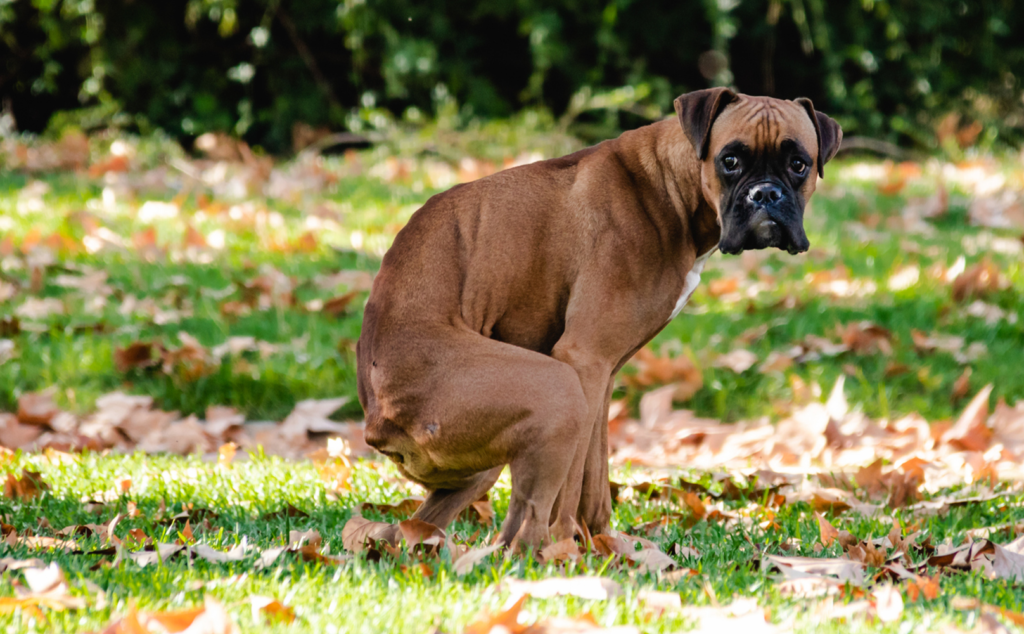

Understanding the nature of intestinal bacteria, how they relate to health and disease, and what we can do to positively influence them can help you prevent (or at least emotionally handle) the next blowout.
Related Article: Dog Diarrhea: Causes, Symptoms, & Treatment
So, let’s talk about bacteria.
The Good, The Bad, and The Supplements
Not all bacteria are bad. In fact, certain species of bacteria and other microorganisms are absolutely essential for our bodies (human, dog, squirrel, etc.) to function. There are at least ten times as many microorganisms living in the GI (gastrointestinal) tract of dogs and humans as there are cells in each of our bodies1.
The relationship between these microorganisms and the GI tract itself is called the intestinal microbiome, and it operates like a little community inside the gut. Gut bacteria aid in digestion of food, defend against potential infections, feed and support the cells of the intestines, and help develop our immune systems.
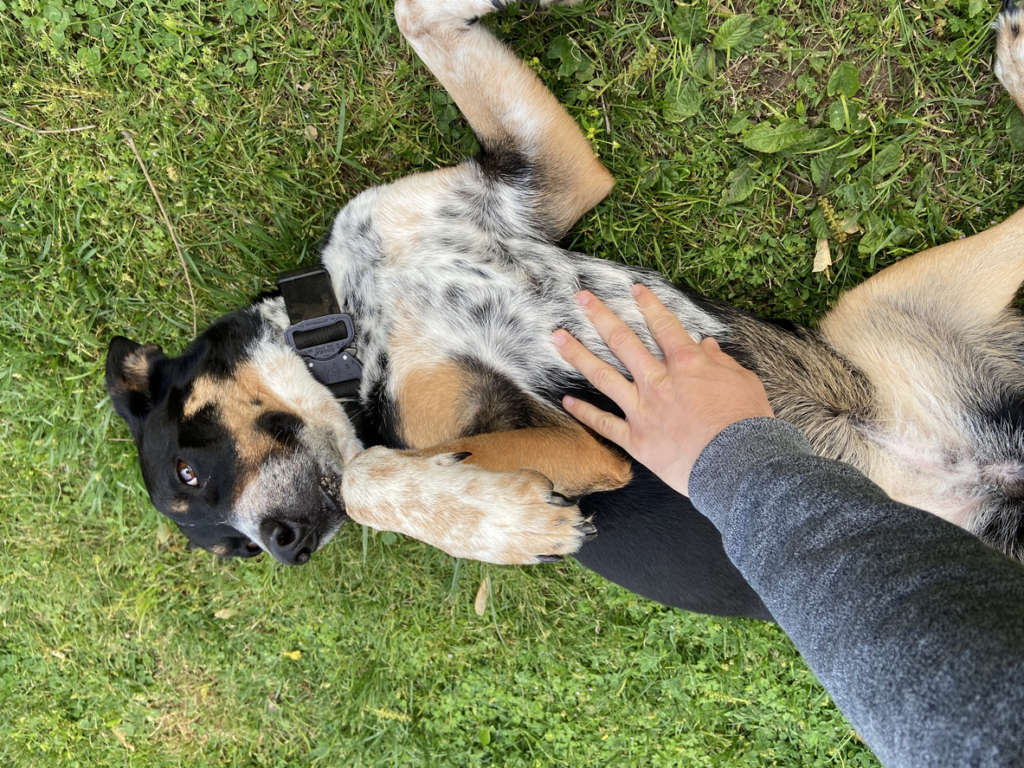

These roles are all extremely important, since the intestinal tract is one of the major ways our body interacts with the world (everything we eat and most of the stuff we touch ends up passing through this organ system) and it is the only way to provide the energy and nutrition the rest of our body needs to function1,2,3. Where do you think all that zest for zoomies comes from?
When the microbiome is healthy and balanced, it makes it very difficult for bad disease-causing bacteria (“pathogenic bacteria”) to gain a foothold. On the other hand, if bad bacteria have taken over (a state called “dysbiosis”), it’s pretty hard for the good guys to get back on top. We know that in most intestinal disorders, from acute diarrhea blowouts (sans diaper!) to chronic conditions like inflammatory bowel disease (IBD), intestinal dysbiosis is usually present as well1,4–8. *cue sad violin music*
To make gut bacteria even more interesting—yay, science!—we are learning (in human studies) that dysbiosis may play roles in many other non-gut conditions, like obesity, diabetes mellitus, and autism9.
It’s hard to say in every case whether intestinal dysbiosis is a cause or an effect. What is clear, however, is that returning balance to the microbiome is always an important part of recovery.


Factors That Affect Your Dog’s Gut Bacteria
1. Nutrition
Gut bacteria need food, too! Although there are bacteria present throughout our entire GI tracts, the vast majority live in the colon. They feast on our leftovers (what remains after we are done digesting food, YUM) by a process called fermentation.
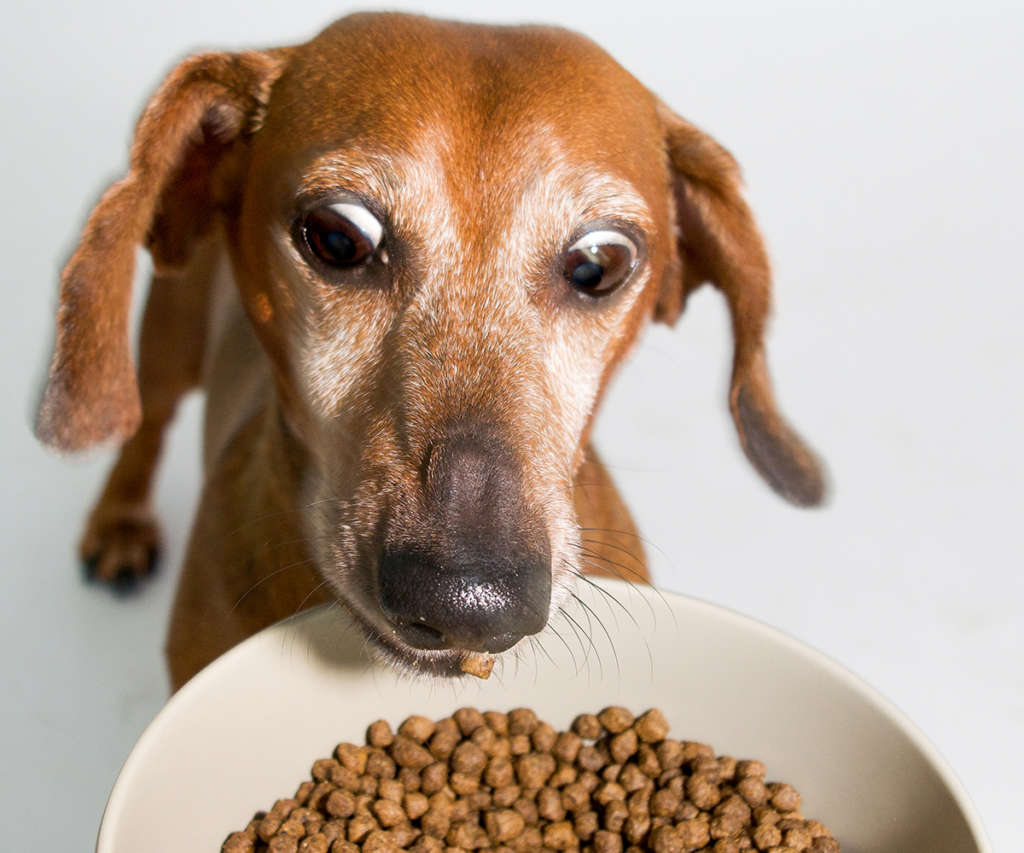

Each type of bacteria has different leftovers that it prefers. When we change what we feed them (like going out for takeout one night, or feeding our dogs the Thanksgiving table scraps), we can create shifts that cause bacteria to flourish in our gut. If the bad bacteria get fed more, they can overgrow and cause inflammation, diarrhea, and majorly offensive gas2,10.
2. Illness
Illness and inflammation can cause toot-inducing shifts in the gut’s microbiome (and sometimes vice-versa)4,5,8.
3. Antibiotics
Antibiotics are medicines that kill bacteria. Unfortunately, they’re so good at it they often take out good bacteria as well as bad, and that can knock that microbiome balance out of whack1.
4. Stress
Stress from travel, changes at home, or spending time in the hospital can cause inflammation in your pup’s gut, leading to diarrhea and, you guessed it, dysbiosis10. Curse you, anxiety!
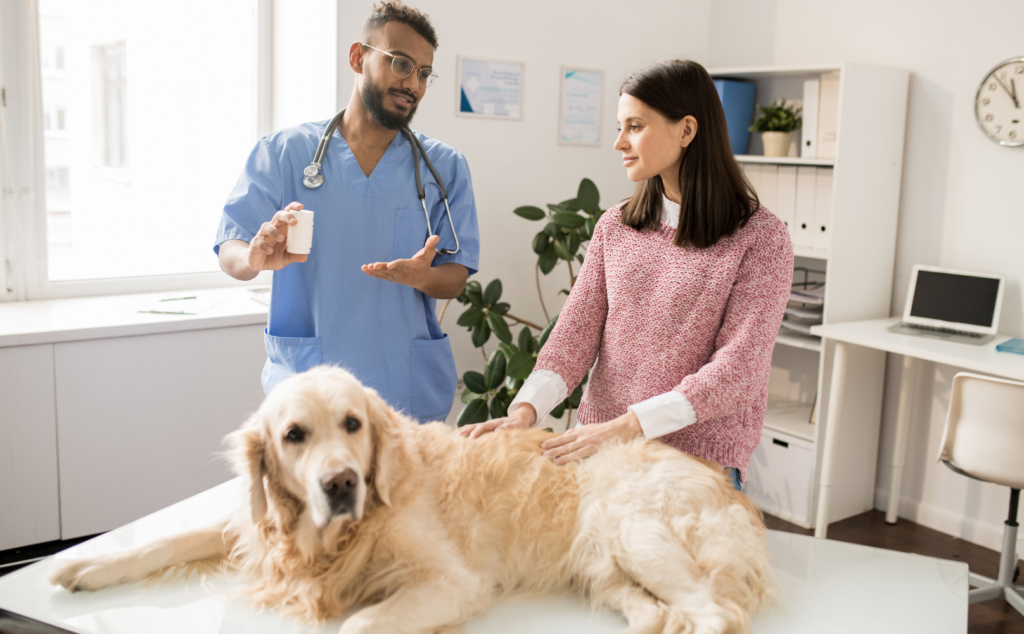

5. Probiotics and Prebiotics
Probiotics are living bacteria that provide health benefits to their host (a.k.a. your dog) when eaten in adequate amounts (we typically provide these as supplements). They are essentially troop reinforcements for the good bacteria fighting the good fight in the intestinal system.
The thought behind probiotic supplements is that we might be able to restore or maintain the good bacteria/bad bacteria balance in the gut by adding more good guys to the mix10–12.
Prebiotics are ingredients that we and our dogs cannot digest, but are super yummy for the good bacteria in our guts. If we don’t feed it, the microbiome can’t sustain itself, and we want to make sure the good guys get plenty of the food they like10,13.
(FYI, synbiotics are a supplement that blends both prebiotics and probiotics together.)
Challenges With Probiotic And Prebiotic Supplements
A probiotic supplement has to make it through some seriously harsh conditions to finally reach its comfy home in the colon—the packaging where it’s stored and waits to be eaten, the acidic stomach, the small intestine full of enzymes that want to digest everything… it’s no picnic.
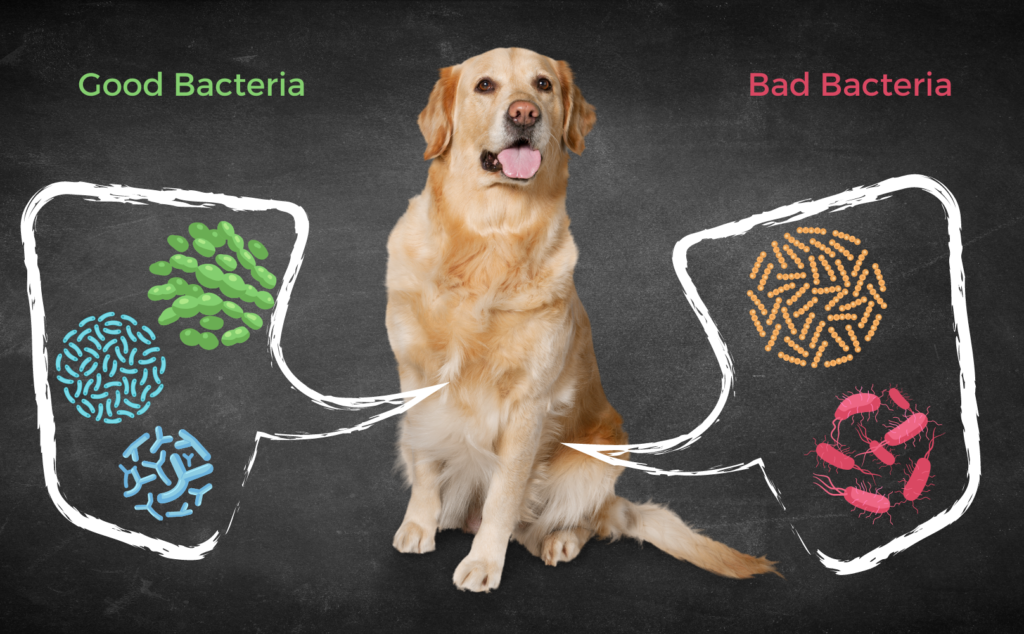

Part of the science of probiotics is how to deliver living bacteria to the colon, because it’s not easy. Since the survival of probiotics all the way to the colon requires very specific conditions, often the only way to deliver them is as a supplement to kibble, rather than putting them in the kibble. This is because kibble requires an equally specific set of conditions to remain fresh and edible, and the two just don’t jive.
The big challenge with incorporating live probiotics into kibble is that kibble has to be dry and cooked, and dryness and cooking are pretty much a death sentence for the good bacteria (they need a little moisture and don’t tolerate high heat, and honestly, same). This is especially true for the best-and-goodest species of canine probiotics that we want to deliver2.
At BARK, we use a specially-derived technology to overcome that obstacle and deliver live, appropriate probiotics pre-blended with our prebiotic-containing kibble. It’s pretty cool.
Related Article: How To Switch To A New Dog Food The Right Way
Speaking of prebiotics, they have their challenges, too! You need to find something that will be “left over” after the body has digested all that it can, and that will be a good source of nutrition for the good bacteria you want to support. Here at BARK, beet pulp is our prebiotic kibble superstar because it is a tremendous source of nutrition for our dogs’ good bacteria, and it promotes nice, solid stools (think fiber). Us dog parents know a good poop when we see one.
Benefits Of Probiotics For Dogs
Right now, there are a lot more studies on the benefits of probiotics for human health than there are in dog health. However, based on the canine studies available and what we know in regards to human health, researchers believe probiotics may help dogs with2:
- Chronic diarrhea
- Acute gastroenteritis (upset tummies) & diarrhea
- Dental disease
- Weight management
- Some urinary tract diseases
- Some inflammatory skin conditions
- Immune system function
Talk with your vet if you want to learn more about how probiotics may benefit your dog’s specific health needs. In the meantime, your BARK kibble will include probiotics and prebiotics selected and formulated by our PhD canine nutritionist, packed into every bite.
It’s a win for their tummies and your nose.
Margo Hennet, DVM, cVMA, and veterinarian at BARK is a canine nutrition, health, & wellness connoisseur. She has a combined 10 years of experience in clinical medicine, research, and education—that’s 70 dog years of know-how—and graduated from Colorado State University as a Doctor of Veterinary Medicine. She completed specialized training in internal medicine prior to working as a general practitioner in Colorado, has authored peer-reviewed publications and textbook chapters, holds certification in veterinary medical acupuncture, and is a member of the American Academy of Veterinary Nutrition and American Veterinary Medical Association.
Sources
1Barko PC, McMichael MA, Swanson KS, Williams DA. The Gastrointestinal Microbiome: A Review. J Vet Intern Med 2018;32:9-25.
2Collings, G. Pet Digestive & Immune Health: Introducing Probiotics & Prebiotics. PETS International 12/2009; 28-29. Accessed on 1/20/22.
3Arpaia N, et al. Metabolites produced by commensal bacteria promote peripheral regulatory T-cell generation. Nature. 2013;504(7480):451–45
4Suchodolski JS, et al. The fecal microbiome in dogs with acute diarrhea and idiopathic inflammatory bowel disease. PLoS One. 2012;7(12):e51907.
5Pereira GQ, Gomes LA, Santos IS, Alfieri AF, Weese JS, Costa MC. Fecal microbiota transplantation in puppies with canine parvovirus infection. J Vet Intern Med. 2018;32(2):707–711.
6Craven MD, et al. Inflammation drives dysbiosis and bacterial invasion in murine models of ileal Crohn’s disease. PLOSOne. 7(7):e41594. Epub 2012 Jul 25.
7Kathrani A, House A, Catchpole B, Murphy A, German A, Werling D, Allenspach K. Polymorphisms in the Tlr4 and Tlr5 gene are significantly associated with inflammatory bowel disease in German shepherd dogs. PLoS One 2010; 5:e15740
8Ziese AL, Suchodolski JS, Hartmann K. Effect of probiotic treatment on the clinical course, intestinal microbiome, and toxigenic Clostridium perfringens in dogs with acute hemorrhagic diarrhea. PLoS One. 2018;13(9):e0204691.
9Dixit K, Chaudhari D, Dhotre D, Shouche Y, Saroj S. Restoration of dysbiotic human gut microbiome for homeostasis. Life Sci 2021; 278:119622.
10Schmitz S, Suchodolski J. Understanding the canine intestinal microbiota and its modification by pro-, pre- and synbiotics—what is the evidence? Vet Med Sci. 2016;2(2):71–94.
11Bybee SN, et al. Effect of the probiotic Enterococcus faecium SF68 on presence of diarrhea in cats and dogs housed in an animal shelter. J Vet Intern Med. 2011;25(4):856–860
12White R, et al. Randomized, controlled trial evaluating the effect of multi-strain probiotic on the mucosal microbiota in canine idiopathic inflammatory bowel disease. Gut Microbes. 2017;8(5):451–466
13Patra AK. Responses of feeding prebiotics on nutrient digestibility, faecal microbiota composition and short-chain fatty acid concentrations in dogs: a meta-analysis. Animal. 2011;5(11):1743–1750.





